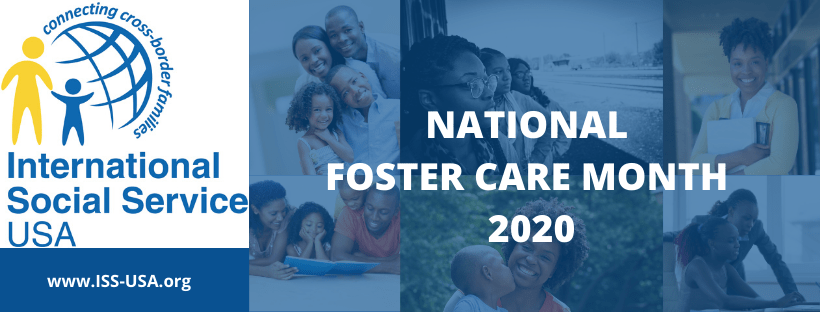
May is National Foster Care Month, and we have been turning our attention to how the current pandemic is affecting children in the system. There is a myriad of challenges to the foster care system on its best days, and the current COVID19 crisis has exacerbated challenges to children in out of home care. Minority communities across the U.S. are some of the hardest hit by the virus, highlighting the inequalities in our health systems and exposing how the most vulnerable in our society so often bear the brunt of national emergencies. This trend is mirrored in the U.S. foster care system, where African American children are overrepresented and low socioeconomic status is a risk factor for family separation.
Among the most vulnerable children in this group are undocumented. First, there is incomplete data on the number of undocumented children who enter the U.S. foster care system, either as the result of abuse or neglect or of enforcement activities. This limits our ability to understand the needs of these children and to protect them.
Second, we know the number of calls to child protection hotlines across the U.S. have seen a dramatic decrease since mid-March when states began to close and mandated reporters in schools and daycares lost daily contact with children. The risk is exacerbated for children who live in homes and communities targeted by immigration enforcement activities, where potential reporters are fearful of repercussions when interacting with public authorities, including Child Protective Services (CPS).
Last, funding for services to undocumented children, who are not entitled to federal benefits such as healthcare, food stamps, and educational waivers under Title IV-E of the Social Security Act when they are placed in out-of-home care, are left up to state budgets and the willingness of individual states, counties and agencies. While we are encouraged by the commitment of some of our state partners to invest in critical child protection services for undocumented children in their care, we know that far more districts are unable or unwilling to apply the same best practices. Furthermore, we are fearful in the context of a pandemic, during which significant public resources are being diverted to address critical public health protections, the ability of states to adequately protect undocumented children in their care is compromised.
There are a few key ways to minimize the risks to these children, even in the context of a national health crisis. First, we need better data on children entering foster care as a result of immigration enforcement. Second, we must call upon stakeholders in our communities to serve as mandated reporters to ensure that children needing to stay at home are safe. Furthermore, we should expand training for community outreach programs and other first responders, to raise awareness about resources available to undocumented children at risk of family separation.
As public health messaging around COVID19 has been adapted to meet linguistic and cultural contexts, it should further include child welfare as a public health issue with a need for a stakeholders to recognize risk factors and take action to protect children.
Finally, achieving these goals requires increased federal funding for state child welfare services and eliminating restrictions on which children are eligible to receive services. If any lesson has been learned through the COVID19 response, it is that the wellbeing of each of us is dependent on the wellbeing of all of us. Let us use this lesson as reminder that constraining care on the basis of race, socioeconomic status, or documentation hurts children and ultimately puts the whole system at risk.
